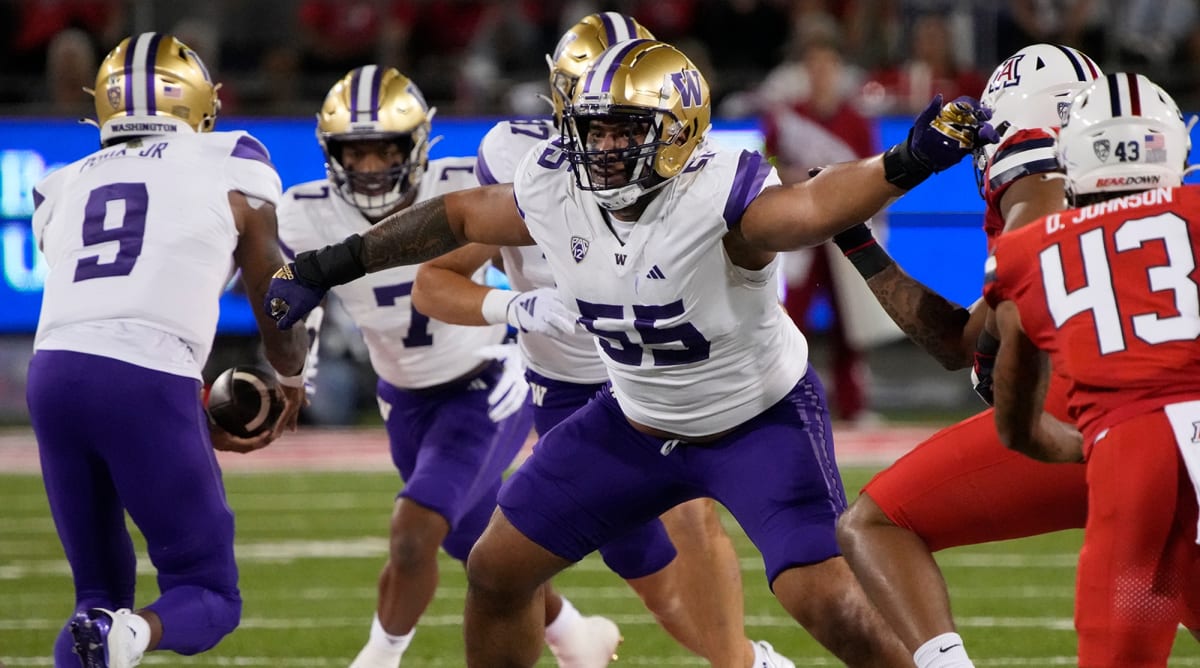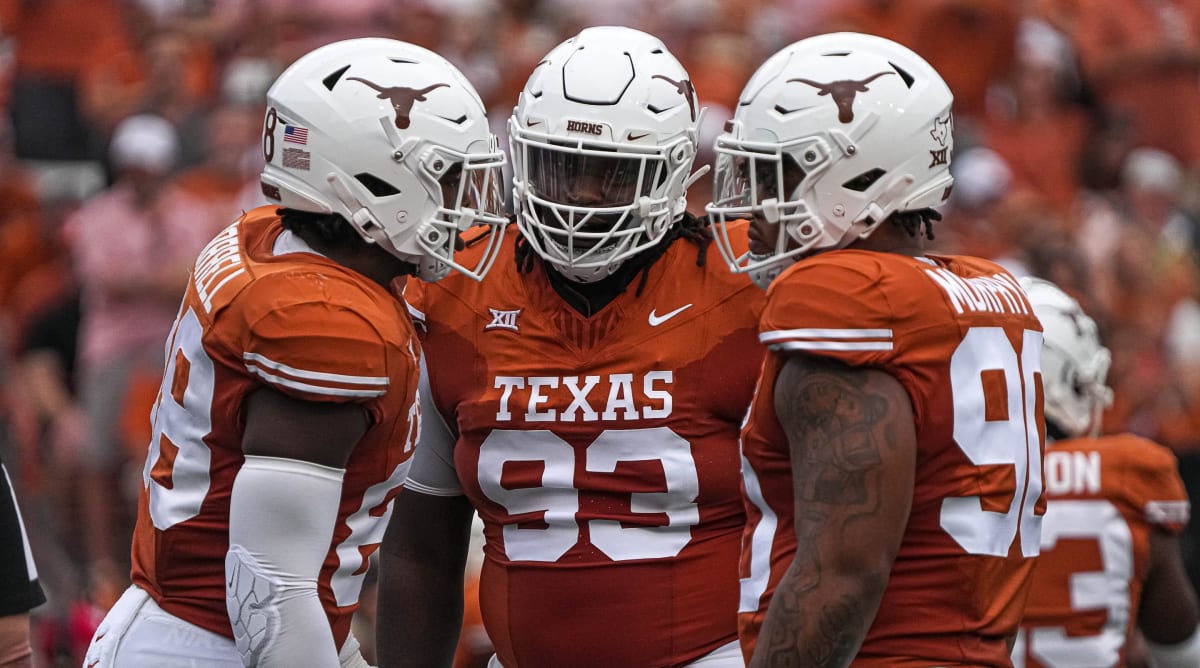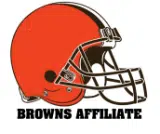NEW ORLEANS—No small amount of effort was expended by some media members at the Sugar Bowl this week trying to goad the Washington offensive line and Texas defensive line into a war of words. For the most part they resisted, but it was fairly easy to read into some true feelings by what was (and wasn’t) said.
Texas defensive tackle T’Vondre Sweat was asked about the Huskies, who won the Joe Moore Award for the best offensive line in the country. “Let me see how I can say this,” Sweat began, then cleared his throat—a preamble that hinted he was going to try to be diplomatic when he didn’t really want to be. “They’re a great group of guys as an O-line. I mean, yeah, like I won awards [too]. Those are just awards to me. We’ll see (Monday) at 7 o’clock how it goes down.”
Washington offensive tackle Troy Fautanu, on whether the Huskies are sufficiently physical to take on Texas in the trenches: “Just turn on the film. Yeah, just turn it on.”
Beneath the simmering competitive juices lies this truth: the best strength-on-strength showdown of this College Football Playoff semifinal is the Washington offensive line against the Texas defensive front. The winner of that matchup may well win the game.

Rick Scuteri/AP
The Huskies lead the nation in passing yards per game at 343.8, riding the arm of Heisman Trophy runner-up Michael Penix Jr. Yet they also are tied for fourth nationally in fewest sacks allowed with just 11 total, or one sack for every 44 pass attempts. Only Oregon has a better ratio nationally than that. Part of Washington’s low sack total is attributable to Penix’s quick delivery of the ball to his receivers, but it should be noted that he’s not much of a scrambler, which increases the importance of keeping him protected in the pocket. The Huskies’ O-line has done that.
On the other side is the manifestation of Texas coach Steve Sarkisian’s three-year mandate to become bigger, stronger and tougher in the trenches. Sweat, an All American, is 362 pounds of interior impediment, with fellow 300-pounders Byron Murphy and Alfred Collins providing additional mass. They’re big reasons why the Longhorns rank third nationally in fewest rushing yards allowed per game at 80.85—a number that declined to 53.86 in the seven games since Texas’s loss to Oklahoma.
The quicker Huskies’ offensive linemen insist they’re tough enough to push around Texas as needed. “As an offensive lineman, you never want to hear that the defensive line is more physical than you,” Fautanu said. “But we’ve been hearing it all year. We’re used to the slander.”
The beefy Longhorns’ defensive lineman believe they’re athletic enough to keep up with Washington as needed. Huskies offensive coordinator Ryan Grubb indicated that making Texas’s big bodies run and play at a high tempo could be key. “Trying to wear them down and get our guys to have the right mindset and physical mentality to just keep them moving and wear them out,” he said.
Beneath the intrigue is this fact: we’ve seen this all once before, almost exactly a year ago. Washington defeated Texas 27–20 in the Alamo Bowl with many of the same primary combatants in that game still around for this one. Some pertinent numbers from that Holiday Bowl: the Huskies allowed zero sacks and zero tackles for loss while compiling a 158–51 rushing advantage. The Washington offensive line won the matchup.
But here’s the rest of that story: the Horns’ defense has appreciably gotten better year-over-year. Yards allowed per carry is down (3.48 to 2.87). Sacks are up (27 to 32). Turnovers forced are way up (14 to 23). Points allowed are down (21.6 to 17.5, which is the fewest per game at Texas since the 2009 team went to the BCS championship game). Those numbers are a big reason why these Longhorns have avenged four of their five losses from ‘22—with Washington now representing the last redemption shot.
The biggest part of that improvement is the biggest man, Sweat, who has tapped into his considerable talent more consistently. “He always had the flash plays in him, and he still does,” said Texas head coach Steve Sarkisian. “… But what I see is a guy who is playing quality football for four quarters and isn’t taking any plays off.”
“He’s a big dude,” said Texas defensive coordinator Pete Kwiatkowski. “And there’s an athlete inside that body somewhere—that’s what we always joke about. But he is hard to move. He eats up a lot of space.”

Aaron E. Martinez/American-Statesman/USA TODAY NETWORK
If Sweat lines up over center, it could be a long night for Washington redshirt freshman Parker Brailsford, who checks in at 275 pounds—nearly 100 pounds lighter than Sweat. Brailsford will need blocking help in that eventuality.
Nevertheless, it is curious that the undefeated Huskies are again an underdog against a team they defeated last time out. They were a one-point underdog to Oregon State and won in Corvallis. They were a whopping 9 1/2-point underdog in the Pac-12 championship game against an Oregon team they beat two months earlier and won that one. Now Washington is a four-point ‘dog to Texas after beating the Horns by a touchdown last year—in a game where Texas scored the final 10 points just to get within one score.
“We know that you have to earn everything,” DeBoer said. “So we have to go earn this win and this opportunity that we have in front of us. We had to do that each and every week during the season. But you also get to the point where you are 9–0, 10–0, and you’re not the favorite team. Not that that’s owed to you or you deserve to be that way.
“But, for us, it’s just kind of something we need to keep proving what we’re all about and finding ways. It’s not really bulletin-board material or anything like that, but just finding those ways to disprove the doubters. We’ve talked about that a lot, especially in the last three or four weeks of the season. A little bit of that maybe continues now.”
In other words, it’s absolutely bulletin-board material for Washington. When the big bodies collide inside Monday night between the Huskies’ offensive line and the Longhorns’ defensive line, we’ll find out which unit’s simmering competitive edge wins out.

















